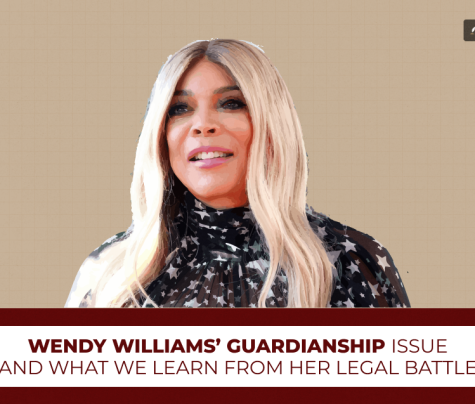
Defamation is a legal term that essentially refers to false statements about a person, which then cause damage to their reputation. The term covers both slander and libel as its subcategories.
Basically, defamation is the case when a statement is wholly untrue, yet the falsity is communicated to a third party, thus causing the defamed person’s reputation or career to suffer.
Britannica states that, in fact, a defamed person is the one whose good name, career, or standing in the community is damaged due to the false statement made by someone to a third party.
Defamation laws are designed to:
- Protect personal reputation from false, damaging statements.
- Protect freedom of speech and press under constitutional rights (e.g., the First Amendment in the U.S.).
If one can figure out the difference between slander vs libel, one can understand in these cases courts deal with different mediums and hence permanence, as well as the burden of proof which is different and therefore affects how courts handle each claim.
In this article, we will talk about the following things:
- What is libel?
- What is slander?
- Difference between slander vs libel.
- Legal requirements to prove slander and libel.
Additionally, we will also answer some of the questions people also ask about the topic. Therefore, keep on reading till the end to find out more…
What Is Defamation?
As we have already mentioned above, defamation is a legal term that refers to a false statement that damages someone’s reputation. According to the Legal Information Institute, it is primarily a “statement that injures a third party’s reputation.”
To prove defamation, you need to establish four key elements:
- False statement.
- Publication or communication of that statement to someone else.
- Fault, which amounted to negligence.
- Harm or damage that someone incurred as a result of those false statements.
Once a party has proven these elements, they can file a defamation lawsuit.
There are two main types of defamation: slander and libel. Slander is spoken defamation, while libel is written defamation. Both can be equally damaging, but there are some key differences between slander vs libel, which we will discuss in the sections below.
What Is Slander?
Slander, on the other hand, refers to spoken or transitory defamation—statements made orally, such as in:
- Conversations.
- Speeches.
- Phone calls.
Because spoken words are fleeting and harder to prove, courts often require the plaintiff to demonstrate actual damages unless the statement falls under “slander per se,” according to Encyclopaedia Britannica.
Additionally, according to Justia, slander is the “unlawful act of damaging a person’s reputation by making false and harmful oral remarks.”
What Is Libel?
Libel refers to written, printed, or otherwise published defamation. This can include the following:
- Digital publications.
- Blogs.
- Newspapers.
- Online posts.
Because it exists in a tangible or permanent form, libel is considered more serious than slander.
According to Cornell Law School’s Legal Information Institute, libel is a “method of defamation expressed by print, writing, pictures, signs, effigies, or any communication embodied in physical form that is injurious to a person’s reputation.”
Similarly, Encyclopaedia Britannica defines libel as defamation expressed by print, writing, pictures, signs, or any communication embodied in physical form.
Subcategories & “Per Se” Doctrines
What Does “Per Se” Mean?
The term “per se” means “by itself.” In defamation law, certain statements are considered so inherently harmful that damage is presumed without the need for further proof.
Examples Of Slander Or Libel Per Se
• Falsely accusing someone of committing a crime.
• Falsely stating that someone has a contagious disease.
• Making false statements that impugn a person’s profession or trade.
• Accusing someone of sexual misconduct or immorality.
In contrast, if the statement does not fall under these categories, the plaintiff must prove special damages (actual financial or reputational harm).
Slander Vs Libel: Key Differences You MUST Know About!
In order to get a clearer picture of what these two forms of defamation are and how they differ from each other, here is a chart that explains these two terms:
| Criteria | Libel | Slander |
| Medium | Written, printed, digital, or broadcast | Spoken or transient |
| Permanence | Permanent (recorded, published) | Temporary (oral statements) |
| Proof of Damage | Often presumed (libel per se) | Usually, one must prove actual damage unless per se |
| Examples | False news article, online review, defamatory tweet | False verbal rumor, slanderous speech, oral accusation |
While both slander and libel are forms of defamation, there are some key differences between them.
Knowing them will certainly help you in ensuring that you are making the right decision for our case. So, without further ado, let us get right into it. Here is the difference between libel and slander:
1. Mode Of Communication
The primary critical difference between slander vs libel is the method of communication. Slander occurs when someone verbally says incorrect or false things to harm someone’s reputation. On the other hand, when it comes to libel, it is a written defamatory tactic.
If someone tells a lie about you to a friend, it is slander. If someone writes a false statement about you in a newspaper article, that is libel. The method of communication may affect what damages you can collect if you prevail in a defamation case.
2. Scope Of Reach
Another significant distinction between slander and libel involves the extent and impact that each can have.
Because libel is written, it has a tendency to be disseminated more broadly and is far more permanent than slander. For example, when a defamatory statement appears in a newspaper or is posted online, it has the potential to be viewed by thousands, if not millions, of people.
By contrast, slander has limited dissemination and is usually confined to those who actually hear the defamatory statement.
However, if others relay the slanderous statement, it can spread beyond the original audience. Slander can have more damaging, long-term consequences.
3. Burden Of Proof
Finally, courts often treat libel as “actionable per se”, meaning damage is presumed once falsity and publication are proven. In contrast, slander typically requires proof of actual damages, unless it falls under “slander per se.”
Read Also: What Proof Do You Need for a Restraining Order?
New York Times Co. v. Sullivan, 376 U.S. 254 (1964)
In the USA, if the plaintiff is a public figure, there is a requirement for an additional element—actual malice—to be established. This signifies that the defendant was aware that the statement was untrue or that the defendant was indifferent to the truth with a reckless disregard.
The precedent Supreme Court case New York Times Co. v. Sullivan was the point at which the actual malice standard for public figure defamation cases was defined.
According to Justia, here’s the primary reason for Sullivan filing the suit:
“The ad contained several minor factual inaccuracies, such as the number of times that King had been arrested and actions taken by the Montgomery, Alabama police. The city Public Safety commissioner, L.B. Sullivan, felt that the criticism of his subordinates reflected on him, even though he was not mentioned in the ad. Sullivan sent a written request to the Times to publicly retract the information, as required for a public figure to seek punitive damages in a libel action under Alabama law.”
The Supreme Court decided the case in favor of the newspaper, asserting that public figures are required to prove actual malice if they want to be awarded damages for defamation.
The ruling has been a major turning point in defamation law as it has made it considerably more difficult for public figures to win defamation cases. Nevertheless, it has also been instrumental in safeguarding the rights of the press and speech.
Modern & Technological Issues
With the rise of digital media, defamation law faces new challenges:
• Online defamation: A defamatory tweet, Facebook post, or Google review is typically treated as libel because it’s written and published.
• Broadcast defamation: Spoken words on TV or radio are often treated as libel, since they reach a wide audience and are recorded.
• Podcasts and video streams: Courts may classify these as libel (if recorded and distributed) or slander (if ephemeral).
• Archival issues: Even deleted online posts can have legal consequences due to screenshots or cached versions.
Legal Defenses And Limitations In Slander Vs Libel Cases
Several legal defenses may protect the defendant even if the statement appears to be defamatory.
1. Truth / “Substantial Truth” Doctrine
If the statement is either fully or “substantially” true, it is not considered defamatory. The courts decide this by focusing on whether the “gist” or the “sting” of the statement is true.
2. Opinion Or Fair Comment
In general, pure opinion statements are protected since they cannot be verified as true or false. Nevertheless, opinions that suggest previously unmentioned defamatory facts may withdraw their protection.
3. Privilege
Some cases have absolute privilege (for instance, statements made in court or legislature) or qualified privilege (for example, employment references, media reporting on public proceedings).
4. Retraction or Apology Statutes
Certain states and jurisdictions permit a retraction or an apology to lessen the harm or to act as a defense, especially in the case of media defendants.
5. Statute of Limitations
The time within which defamation claims can be made is limited. Usually, these are restricted to one to three years from the time of publication, depending on the jurisdiction.
6. Constitutional Free Speech Protections
The courts have to weigh the defamation claims against the rights of free speech and free press. They have to be careful that the imposition of liability does not discourage public discussion.
Practical Guidance: What to Do If You Are Accused or a Victim
Here’s a quick guide to what you can do if you are in the middle of a defamation case:
If You’re a Victim of Defamation
1. Document everything
2. Consult a lawyer
3. Send a cease and desist letter
4. Evaluate damages
5. File a suit if necessary
If You’re Accused of Defamation
1. Avoid further publication or commentary.
2. Review your statements
3. Consider issuing a retraction or apology
4. Seek legal counsel
Read Also: False Light VS Defamation: Know How They are “Same-Same But Different”
Frequently Asked Questions (FAQs):
While both slander and libel fall under the broad category of defamation, the medium and permanence of the statement often determine how a claim is pursued.
Here are some of the questions that people frequently ask about slander vs libel cases. Take a look at them before you leave:
Most of the time, the answer is yes. As libel is a permanent record and can be seen by a large number of people, courts in most cases consider it to be more serious than slander.
Generally no. Opinions that are completely pure are safe. However, the ones that suggest facts without revealing them can be subject to legal action.
The statute of limitations for defamation cases varies from one to three years, depending on the location of the court. Trying to figure out the time given is always better when you have a lawyer with you.
The majority of courts consider them as libel since the defamatory statements are captured and made available to the public.











0 Reply
No comments yet.